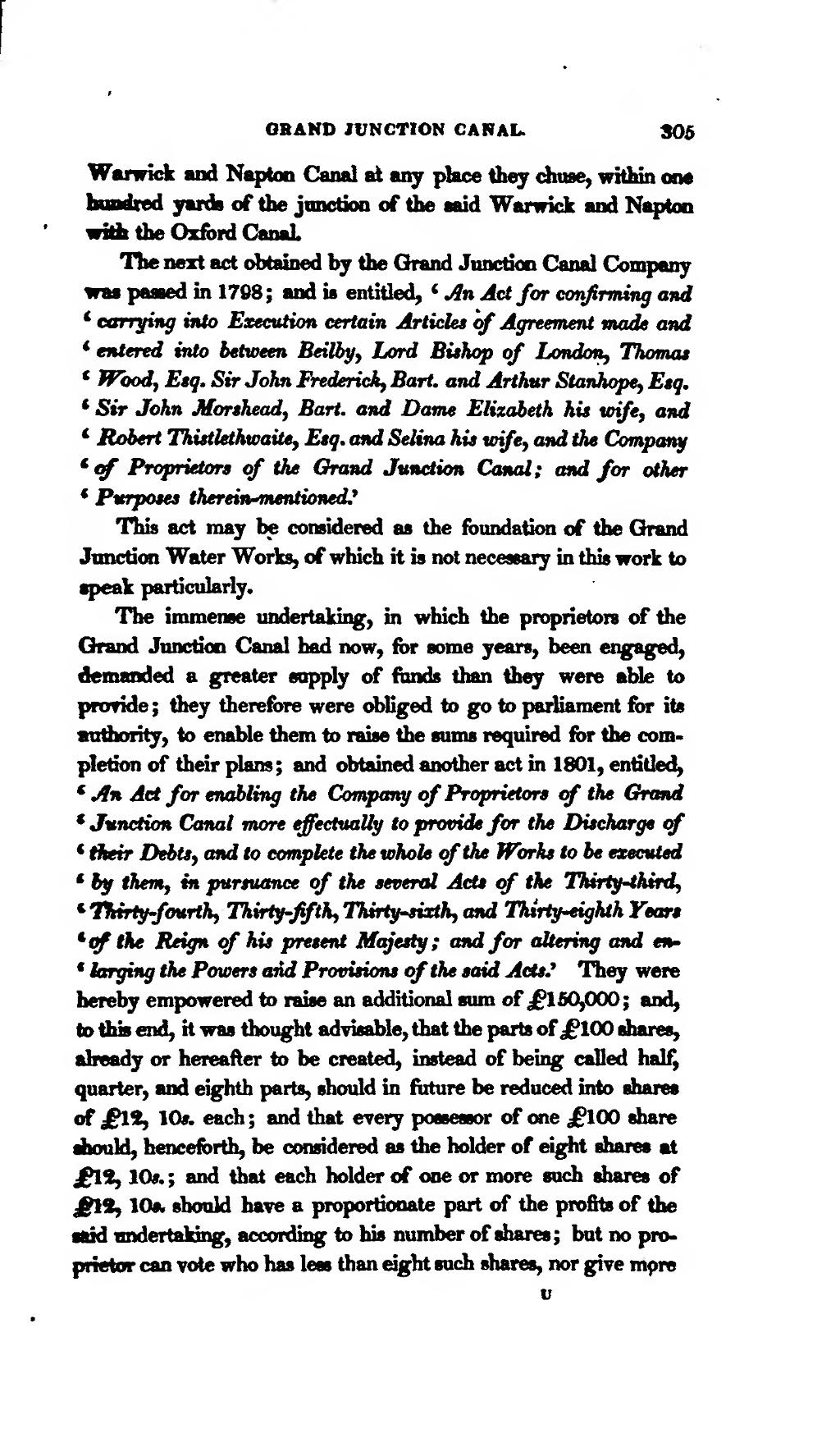Warwick and Napton Canal at any place they chuse, within one hundred yards of the junction of the said Warwick and Napton with the Oxford Canal.
The next act obtained by the Grand Junction Canal Company was passed in 1798; and is entitled, An Act for confirming and carrying into Execution certain Articles of Agreement made and entered into between Beilby, Lord Bishop of London, Thomas Wood, Esq. Sir John Frederick, Bart. and Arthur Stanhope, Esq. Sir John Morshead, Bart. and Dame Elizabeth his wife, and Robert Thistlethwaite, Esq. and Selina his wife, and the Company of Proprietors of the Grand Junction Canal; and for other Purposes therein-mentioned.
This act may be considered as the foundation of the Grand Junction Water Works, of which it is not necessary in this work to speak particularly.
The immense undertaking, in which the proprietors of the Grand Junction Canal had now, for some years, been engaged, demanded a greater supply of funds than they were able to provide; they therefore were obliged to go to parliament for its authority, to enable them to raise the sums required for the completion of their plans; and obtained another act in 1801, entitled, An Act for enabling the Company of Proprietors of the Grand Junction Canal more effectually to provide for the Discharge of their Debts, and to complete the whole of the Works to be executed by them, in pursuance of the several Acts of the Thirty-third, Thirty-fourth, Thirty-fifth, Thirty-sixth, and Thirty-eighth Years of the Reign of his present Majesty; and for altering and enlarging the Powers and Provisions of the said Acts. They were hereby empowered to raise an additional sum of £150,000; and, to this end, it was thought advisable, that the parts of £100 shares, already or hereafter to be created, instead of being called half, quarter, and eighth parts, should in future be reduced into shares of 10s. each; and that every possessor of one £100 share should, henceforth, be considered as the holder of eight shares at £12, 10s.; and that each holder of one or more such shares of £12, 10s. should have a proportionate part of the profits of the said undertaking, according to his number of shares; but no proprietor can vote who has less than eight such shares, nor give more
